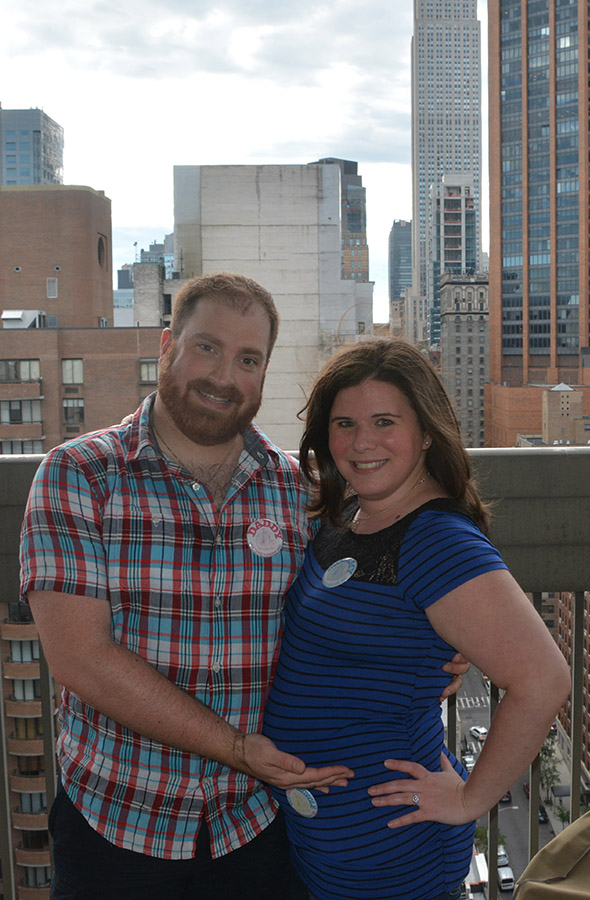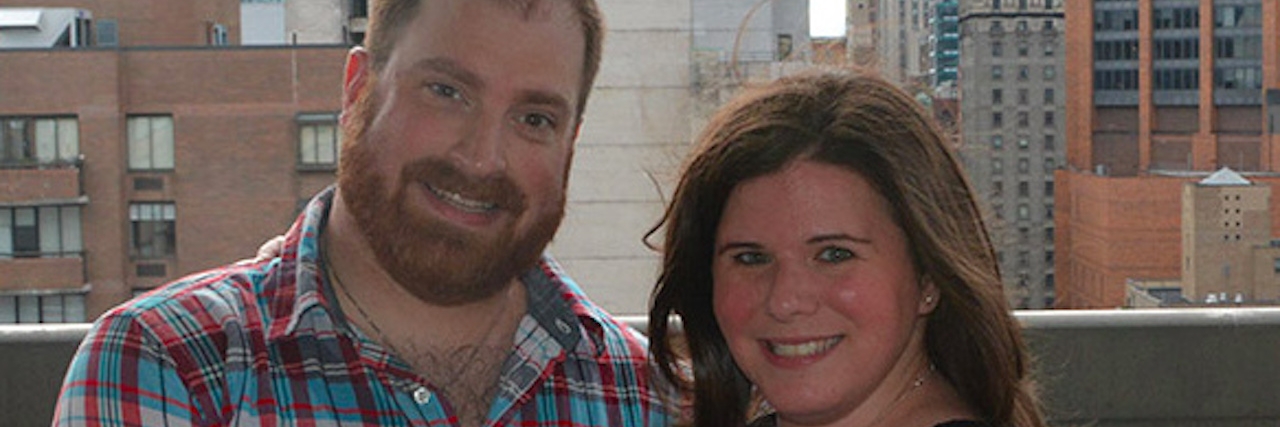What I Want You to Know About Being Pregnant With Sensory Processing Disorder
You’ve read the title, so let’s make it official: I’m a woman with sensory processing disorder (SPD), and I am 12 weeks pregnant! For those of you who know me (and my urge to share as much of my sensory life as I can to educate and support others like me), this delightful turn of events was incredibly hard to keep secret. Just typing these words feels like the best exhale after the longest deep breath of my 33 years, so pardon me as I scream “Wahoo!” from this corner of the Peanut Gallery.
As always, I have a ton to say about this life-changing moment in time. Pregnancy is an overwhelming premise for even the most “typical” of neurotypical women. Your body basically says to you: Peace out, girlfriend, I’ve got to go do something major right now that you have zero control over, so watch in awe as nausea washes over you, your senses go haywire and your abdomen swells up like ripe fruit. The change here is I’ve made the decision to open up my differently wired system to the from-scratch growth of a human being; a system that is perpetually haunted by the mysteries of a sensory world it doesn’t quite understand. I’m a pregnant woman with a lesser-known neurological condition. I’m with child and I’m hypersensitive to sound and sight. I’ve got a womb with a view (*snicker*), and I can’t connect my ever-changing body to the world around me.
The funny thing is I’ve never been happier.

In a life filled with so much difference, it’s a pure and unadulterated delight to delve deeply into something many neurotypical and neurodiverse women alike both experience during the course of their lifetime. Sure, other aspects of my life fall into the same category. I work and I relax. I’m married. I have friends and hobbies and likes and dislikes. But all of these typical things are unrelated to my body. I’m usually the one maneuvering through my sensory-based challenges to enjoy social time in my way, or the employee navigating the waters of accommodation to produce my best work. The physical aspects of these challenges are mine alone and frequently misunderstood outside of my community of like-wired individuals, family and close friends. The particular battery of sensations I experience within my differently wired brain can’t be experienced by anyone external to my skin.
As a pregnant woman, I’m doing something women have done since the dawn of time. I can text any single one of my mom and mom-to-be friends about the bone-deep weariness and exhaustion of the first trimester, and they’ll respond with a message that shows they personally understand the events taking place within my abdomen. I’m temporarily part of a group that’s widely understood and accepted. They make special stretchy pants for people like us. They’ve written thousands upon thousands of books on the subject. I don’t have to be a pioneer in this particular world. And yet, in some ways, I do. As much as I’m a pregnant woman, I’m also a woman with SPD. It’s the balance between these two spheres that I’m working on as we speak — still finding my own sensory-friendly path through otherwise well-charted waters.
A psychiatrist once asked me how I envisioned being a mother while having SPD, especially given my sensitivities and my often-pushed limitations. I answered with a few sentences about “people with disabilities, visible or otherwise, make amazingly sensitive parents too, especially since they contend with so many challenges in their lives,” but I came home to my husband feeling low and inadequate. In his wisdom, he said to me, “Listen, we can’t solve a problem we have yet to create” — meaning hey, we’ll figure it out as we go. It’s the purpose of this life, I think: we take leaps and we weave our own parachutes as we soar.
Today, I’m still a person with SPD. I’m in total awe of the little person growing fingers and toes inside of me. I don’t know what tomorrow will bring, or the next day, or the next; when I’ll get to be a part of an established group and when I’ll have to break new ground, as pregnant sensory women often do. Will my doctor be mindful of my sensory needs during delivery? Will I be able to stand the sound of my newborn crying? How will I manage the erratic bobs and weaves of a running toddler? Will my future-child understand my sensory needs…or perhaps even their own, should they be wired differently, too? We can’t solve a problem we have yet to create.
What I do know is I have an incredibly patient husband and a loving extended network of supporters — from family to friends to a community of people with the same neurological differences as me. I personally take a village, so I can only assume my child will, too. Most of all, though, I have a drive to move forward and meet my future. It’s a place that’s starting to come into view through the brightest haze for the first time. There, flanked by my husband, I’ll hold a tiny hand we created together in the palm of my own. We’ll be a family.
Let the sensory pieces fall where they may.
Follow this journey on Coming To My Senses.

